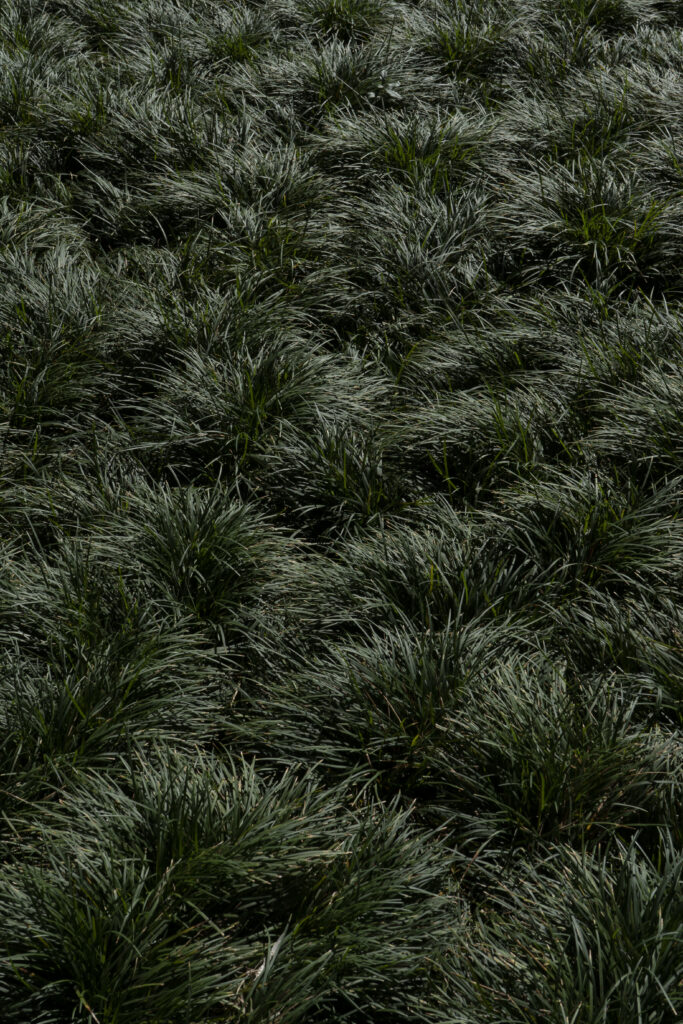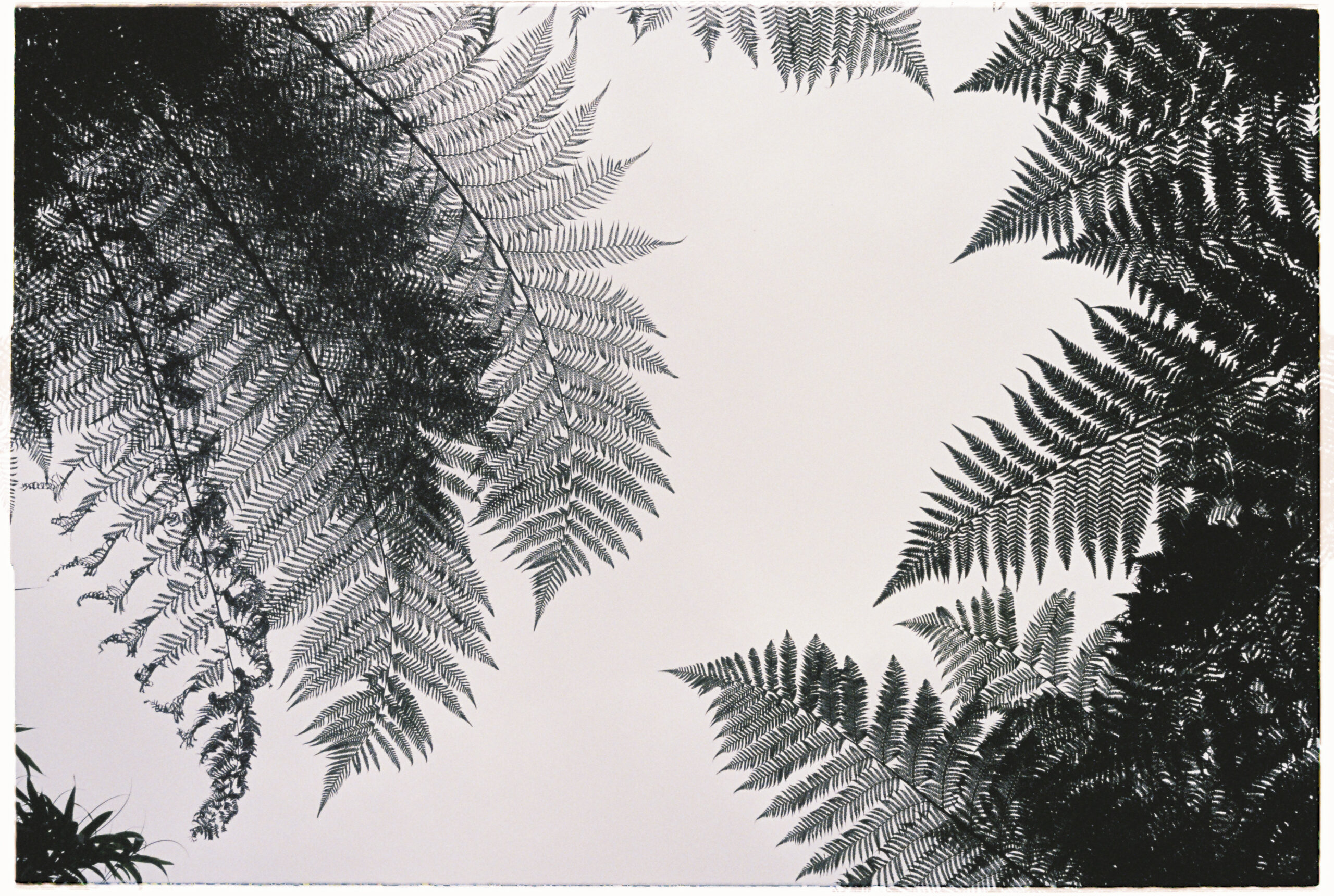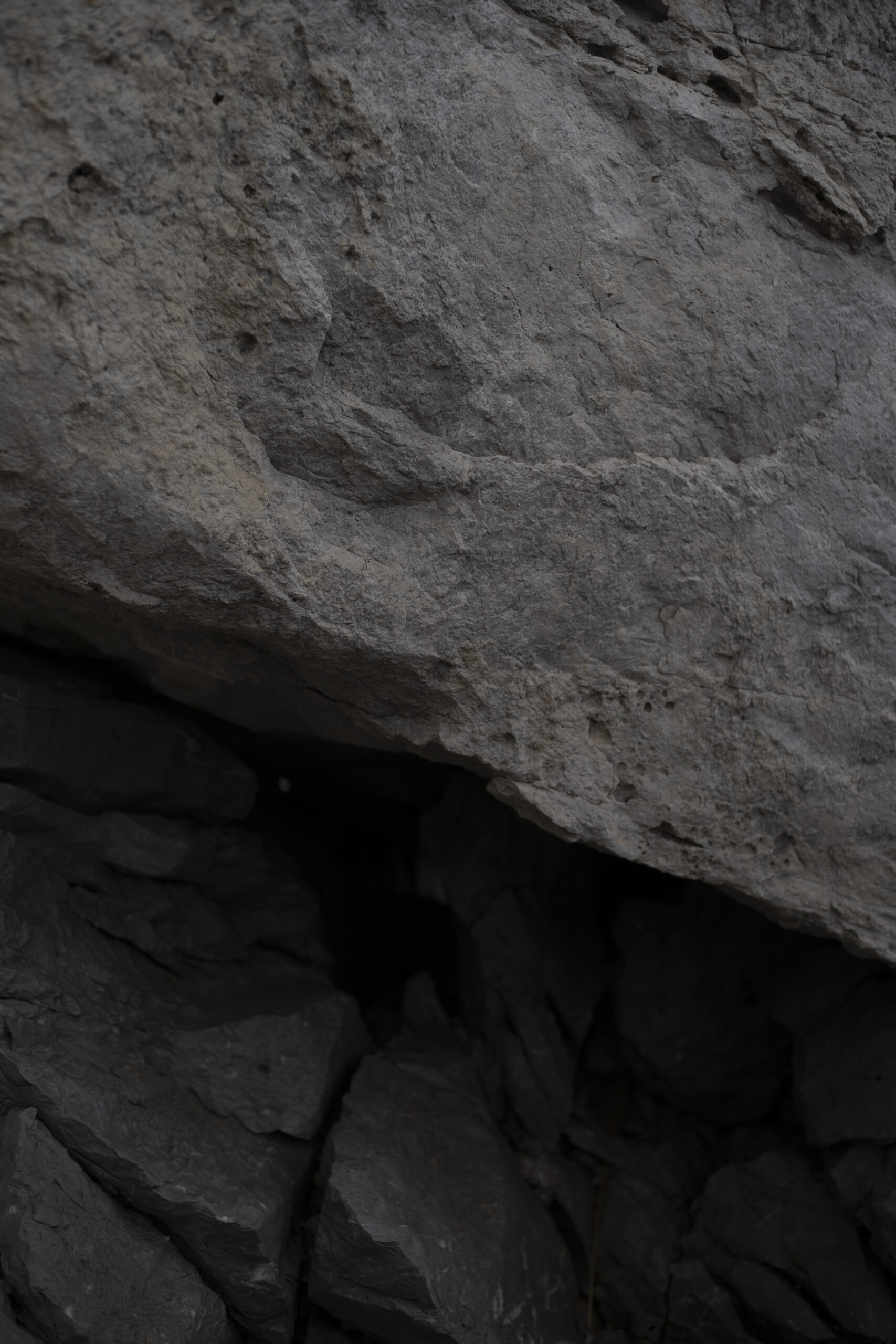
Quando le piante non avranno nome.
Un futuro panbiotico in un mondo post-linguistico.
L’idea di decentrarsi non è che l’alba di nuovi centri. È un movimento che mette in scena un allontanamento dal centro ma che in fin dei conti non lo perde mai. Un “io” millanta di o prova a de-centrarsi ma nel fare ciò non smette mai di essere io e parlare da io. Io alla fine sarò costretto a muovermi a partire dal centro che non posso non essere.
Il fatto che quella cosa chiamata Luca Cinquemani si trovi qui a infliggervi/infliggersi l’operazione più dolorosamente umana del mondo e cioè “scrivere” – e per giunta nella sua varietà più deprecabile che è “scrivere di” (in realtà non conosco altre varietà) – lo mette nella posizione che più lo ha irritato e insospettito nell’ultimo anno della sua vita. Si tratta di una posizione che ha una lunghissima tradizione: quella di un umano che chiama se stesso umano e che si è arrogato il diritto di “parlare di” e “scrivere di”. Questo umano possiede tutti i nomi per nominare e tutti i concetti per analizzare ora cose e ora vite che in un dato momento attraggono la sua attenzione.
Alcuni giorni fa, in una delle mie frequenti visite all’Orto Botanico di Palermo, aspettando in fila all’ingresso, annoiato e impaziente di entrare, leggo il testo di un divieto di accesso ai cani e ad altri animali. L’annuncio cominciava all’incirca così: “L’Orto Botanico nasce per migliorare la conoscenza scientifica delle piante…”. Quelle parole, lette distrattamente, mi hanno suscitato una specie di vertigine, una sensazione di straniamento che mi ha accompagnato per l’intera giornata. Quella piccola frase, sebbene in apparenza indifferente e a-problematica, ha avuto su di me un tale effetto perché condensa in sé, in modo formidabile, tutta la violenza di un’intera civiltà. Ciò che racconta non è altro che la miseria di un umano che ha creato la categoria linguistica “pianta” – come anche quella di “fungo” o di “uccello” – e pretende pure che tali categorie esistano fuori dal suo linguaggio. Ma non è tutto: l’umano occidentale accompagna il suo arrogante enunciato linguistico con la presunzione di conoscere “scientificamente” queste piante. Non ripercorrerò qui la storia che ha condotto l’impiegato dell’orto a scrivere quella frase sul cartello e i visitatori a percepirla come scontata, normale o non controversa. In verità non voglio consumare i miei giorni nel ricostruire la storia dell’idiozia del mondo umano occidentale, né qui né in altra sede.
Ciò che voglio dire – e spero che presto questa volontà di dire, già flebile, svanisca del tutto – è che il concetto di pianta e la parola “pianta” sono null’altro che invenzioni umane e come tali vivono solo nel linguaggio verbale: una pianta non ha né può per sua fortuna avere idea di cosa sia una pianta. Questi enunciati linguistici umani però, pur vivendo nel linguaggio umano, sono tutt’altro che innocui o privi di conseguenze: rappresentano il più grande limite alla “conoscenza” che si possa fare di una pianta.
Questa violenza linguistica, che è figlia della grande e insanabile separazione che attraversa la filosofia e la politica occidentale, obbligherà Luca Cinquemani e altri come lui a non poter vedere una pianta che come “pianta”. Allo stesso tempo costringerà la pianta nell’angusta e determinata nicchia umana delle piante senza lasciarle alcuna libertà di chiamarsi o non chiamarsi. La conseguenza più grave è che se io sperassi di avere con una pianta una relazione libera dal concetto di pianta non avrei molta fortuna (ciò vale anche per tutte le altre forme di vita che ci siamo dilettati a dividere in regni ben separati, famiglie, generi, specie). Né è previsto, peraltro, che questa relazione venga eventualmente iniziata e condotta dalla pianta alla maniera della pianta anziché dall’umano. È sempre quest’ultimo ad essere autorizzato a nominare e attivare relazioni con. Pure quando si lamenta di essere antropocentrico non rinuncia mai al suo privilegio tossico, coloniale e patriarcale di parlare delle e per le altre forme di vita, imbavagliandole e relegandole al ruolo di meri oggetti parlati/posseduti/analizzati/schiacciati dagli umani. E se relazione c’era con essi prima del linguaggio, prima cioè che l’umano divenisse umano, abbiamo fatto di tutto per separare e dividere.
Il tutto, che forse era, è stato scisso, “particolato” e polverizzato dal latrare sintattico che tutto divide e tutto governa.
Mentre cresce la nuova “sensibilità verso la natura” e verso la campagna (ma cos’è questa natura poi, se non il concetto umano per eccellenza?) e alcuni libri sulle piante e sui funghi diventano best-seller che se non li leggi non sei abbastanza cool, scopriamo allibiti le stupefacenti connessioni tra esseri viventi: simbiosi, cooperazioni e alleanze tra specie le più svariate.
È quasi grottesco vedere come oggi, spinti da questo nuovo interesse, alcuni pensatori individuino tutta una serie di relazioni tra forme di vita di cui sembrano essersi accorti soltanto adesso.
E presi da questo interesse a riscoprire una vita interconnessa forse sospettiamo anche di essere o essere stati parte di queste relazioni. Peccato che ci siamo affrettati sin da piccoli – o fuor di metafora, sin dalla fondazione greca della filosofia occidentale – a dividere e chiudere la vita nelle anse mortifere del linguaggio verbale, lo stesso che ci ha messi al mondo come umani. Governare o aver avuto l’illusione di governare il pianeta separando la vita ha comportato il prezzo supremo di finire irrimediabilmente soli. Dominatori soli e deboli, ossessionati dalla paura della fine. Forse non è un caso che in Occidente, da almeno mezzo secolo, si parli incessantemente di fine della civiltà e fine della storia.
Dalla grande separazione non vi è uscita. Noi non possediamo il linguaggio ma è il linguaggio che ci possiede: da esso non vi è fuga. Questo è ciò che pensavo alcuni mesi fa con una certa convinzione. Oggi ho il sospetto che questa visione sia soltanto un pretesto per continuare a parlare dell’impossibilità di abbattere un privilegio umano che in fin dei conti – lo vediamo ormai tutti – è solo un veleno da cui liberarsi. Penso che l’idea dell’impossibilità del superamento del linguaggio verbale sia una narrazione tenace quanto dogmatica che dobbiamo iniziare a mettere in crisi.
Credo che sia vicino il tempo in cui potremo sfidare il demone che ci possiede. Se avremo coraggio ci inoltreremo dapprima nel tempo del silenzio e dell’ascolto non linguistico, cui farà seguito la graduale spoliazione linguistica. Sarà quindi la volta dell’interruzione graduale della trasmissione del linguaggio verbale alle nuove generazioni. Questo sarà il grande salto verso l’umano post-linguistico. Nessun ritorno all’animale, si badi bene: le narrazioni con cui oggi possiamo tentare di immaginare l’umano che verrà, inclusa quella del ritorno all’animale, o anche quella dell’umano o del vivente, salteranno tutte perché tutte si reggono su un linguaggio che in quel punto, semplicemente, non ci sarà più.
Anche il concetto di pianta e tutti gli altri concetti saranno nullificati.
In quel punto niente di questo testo sarà leggibile e il vivente post-linguistico avrà perso il ricordo delle infami divisioni.
La fotosintesi capterà l’energia extra-terrestre trasformandola in energia chimica che nutrirà un pianeta finalmente liberato. La vita emetterà sussulti di una felicità impensabile e un complesso connettivo pan-biotico vibrerà fluido e continuo attraverso enormi varietà di esseri viventi e non viventi.
La necessità che qui avverto di immaginare e raccontare il mondo post-linguistico e la sorte che toccherà all’umano tradisce il mio pensiero antropocentrico e logocentrico.
Anch’essa cadrà, come tutte le determinazioni che riposano sul linguaggio.
Luca Cinquemani

Luca Cinquemani è un filosofo ed un artista che vive a Palermo. Partecipa alle attività di diversi collettivi d’arte e politica della città. Da tempo si dedica ai fiori e ai boschi della Sicilia Occidentale.
E’ autore di ‘Forme|di|vita: dal pensiero destituente nella filosofia di Giorgio Agamben alla radicale nullificazione del dispositivo’.

When plants will have no name.
The possible rise of the panbiotic in a post-linguistic world.
The idea of decentralization is just the dawn of new centers. It is a movement which stages a departure from the center but which ultimately never loses it. An “I” brags about or tries to de-center itself but in doing so it never stops being me and speaking as me. In the end I will be forced to move from the center that I cannot ‘not be’.
The fact that that thing called Luca Cinquemani is here inflicting on you and itself the most painfully human operation in the world, that is, “writing” – and what’s more, in its most deplorable variety which is “writing about” (actually I don’t know of other varieties) – puts him in the position that mostly irritated and aroused suspicion in him in the last year of his life. This is a position that has a very long tradition: that of a human who call themselves human and who has claimed the right to “talk about” and “write about”. This human has all the names to name and all the concepts to analyze things and lives that at a given moment attract their attention.
A few days ago, in one of my frequent visits to the Botanical Garden of Palermo, waiting in line at the entrance, bored and impatient to enter, I read the text of a ban on access to dogs and other animals. The announcement began roughly like this: “The Botanical Garden was created to improve the scientific knowledge of plants …”. Those words, read casually, caused me a kind of dizziness, a feeling of estrangement that accompanied me for the whole day. That small sentence, although apparently indifferent and a-problematic, had such an effect on me because it condenses within itself, in a formidable way, all the violence of an entire civilization. What it tells is nothing other than the misery of a human who created the linguistic category “plant” – as well as that of “mushroom” or “bird” – and also claims that such categories exist outside their language. But that’s not all: the Western human accompanies their arrogant linguistic utterance with the presumption of knowing these plants “scientifically”. I will not retrace here the story that led the garden clerk to write that sentence on the sign and visitors to perceive it as obvious, normal or not controversial. In truth, I don’t want to waste my days in reconstructing the history of idiocy in the Western human world, neither here nor elsewhere.
What I mean – and I hope that this already weak will to say will soon vanish altogether – is that the concept of plant and the word “plant” are nothing more than human inventions and as such they live only in verbal language: a plant has and luckily cannot have any idea what a plant is. However, these human linguistic utterances, while living in human language, are anything but harmless or without consequences: they represent the greatest limit to the “knowledge” that can be made of a plant.
This linguistic violence, which is the daughter of the great and incurable separation that crosses Western philosophy and politics, will force Luca Cinquemani and others like him to be able to see a plant only as a “plant”. At the same time it will force the plant into the narrow and determined human niche of plants without leaving it any freedom to call itself or not to call itself. The most serious consequence is that if I hoped to have a relationship with a plant free from the concept of plant I would not have much luck (this also applies to all the other forms of life that we have delighted in dividing into well-separated kingdoms, families, genera, species). Nor is it expected, however, that this relationship will eventually be initiated and conducted by the plant in the manner of the plant rather than by the human. It is always the latter who is authorized to appoint and activate relationships with. Even when they complain of being anthropocentric they never give up their toxic, colonial and patriarchal privilege of talking about and for other life forms, gagging and relegating them to the role of mere objects spoken / possessed / analyzed / crushed by humans. And if there was a relationship with them before language, that is, before the human became human, we have done everything to separate and divide.
The whole, which perhaps once was, has been split up, “particulated” and pulverized by the syntactic bark that divides everything and governs everything.
While the new “sensitivity to nature” and to the countryside is growing (but what is this nature, if not the human concept par excellence?) and some books on plants and mushrooms become best-sellers that if you don’t read them you won’t be cool enough, we discover astounded the amazing connections between living beings: symbiosis, cooperation and alliances between the most varied species.
It is almost grotesque to see how today, driven by this new interest, some thinkers identify a whole series of relationships between life forms that they seem to have only now realized.
And taken by this interest in rediscovering an interconnected life, perhaps we also suspect that we are or have been part of these relationships. It is a pity that we hastened from an early age – or out of metaphor, since the Greek foundation of Western philosophy – to divide and close life in the deadly loops of verbal language, the same that brought us into the world as humans. Ruling or having had the illusion of ruling the planet by separating life has entailed the supreme price of ending up hopelessly alone. Lonely and weak rulers, obsessed with fear of the end. Perhaps it is no coincidence that in the West, for at least half a century, there has been constant talk of the end of civilization and the end of history.
There is no way out of the great separation. We do not possess language but it is language that possesses us: there is no escape from it. This is what I thought a few months ago with some conviction. Today I suspect that this vision is only a pretext for continuing to talk about the impossibility of overthrowing a human privilege which in the end – we all see it now – is just a poison to be freed from. I think that the idea of the impossibility of overcoming verbal language is a tenacious as well as dogmatic narrative that we must begin to undermine.
I believe the time is near when we can challenge the demon that possesses us. If we have courage, we will first enter the time of silence and non-linguistic listening, which will be followed by the gradual linguistic dispossession. It will therefore be the turn of the gradual interruption of the transmission of verbal language to the new generations. This will be the great leap towards the post-linguistic human. No return to the animal, mind you: the narratives with which today we can try to imagine the human to come, including that of the return to the animal, or even that of the human or the living, will all miss the point because they all stand on a language that will simply no longer exist at that point.
The concept of plant and all other concepts will also be nullified.
At that point none of this text will be legible and the post-linguistic living will have lost the memory of the infamous divisions.
Photosynthesis will capture extra-terrestrial energy, transforming it into chemical energy that will nourish a finally liberated planet. Life will emit gasps of unthinkable happiness and a pan-biotic connective complex will vibrate fluidly and continuously through enormous varieties of living and non-living beings.
The need I feel here to imagine and tell the post-linguistic world and the fate that will befall the human being betrays my anthropocentric and logocentric thinking.
It too will fall, like all determinations that rest on language.
Luca Cinquemani
translated by Pietro Librizzi
Luca Cinquemani is a philosopher and an artist living in Palermo. He takes part in the activities of many art and politcal collectives of the city. For a while now, he has been dedicating to flowers and to the discovery of the Wester-Sicily woods.
https://www.instagram.com/fabi